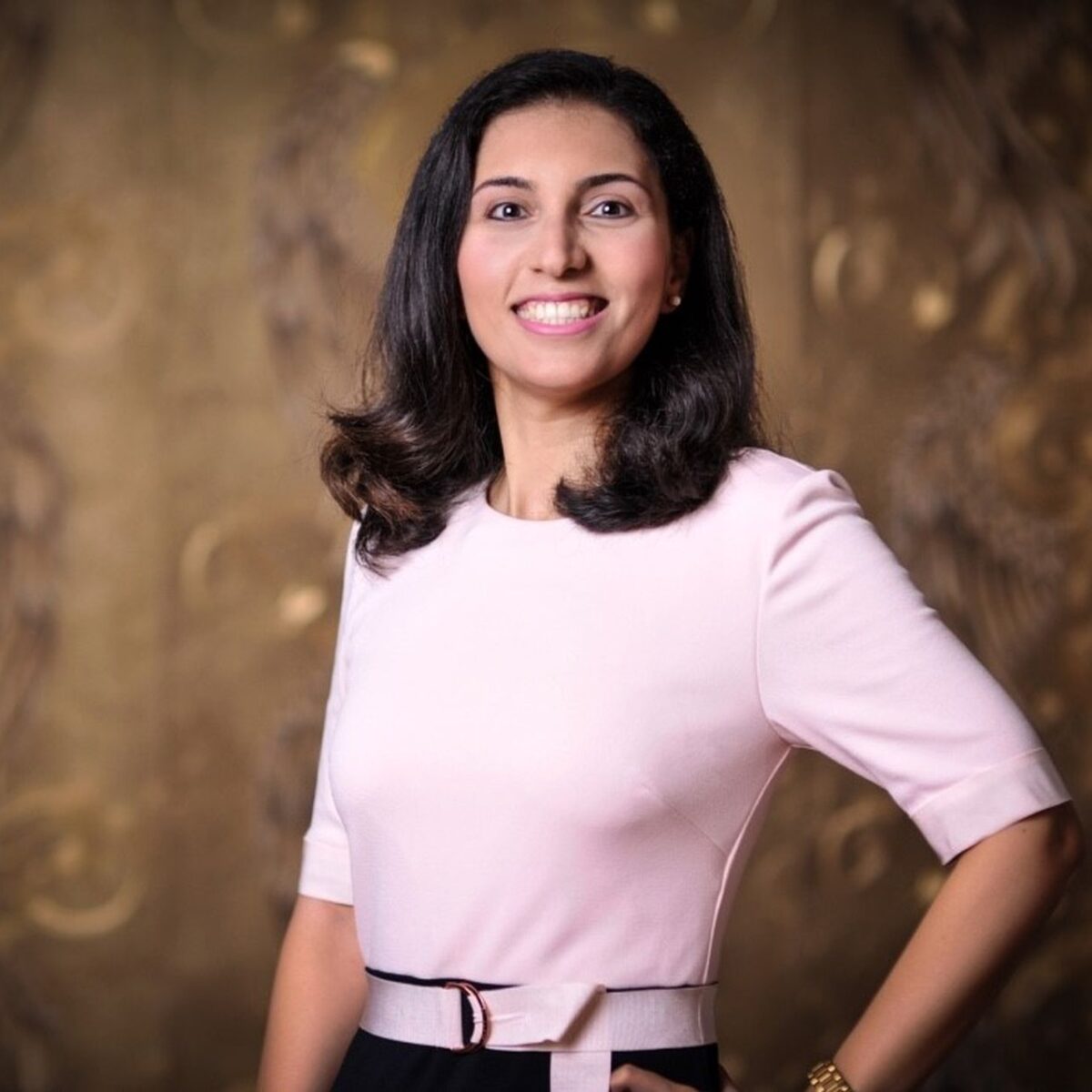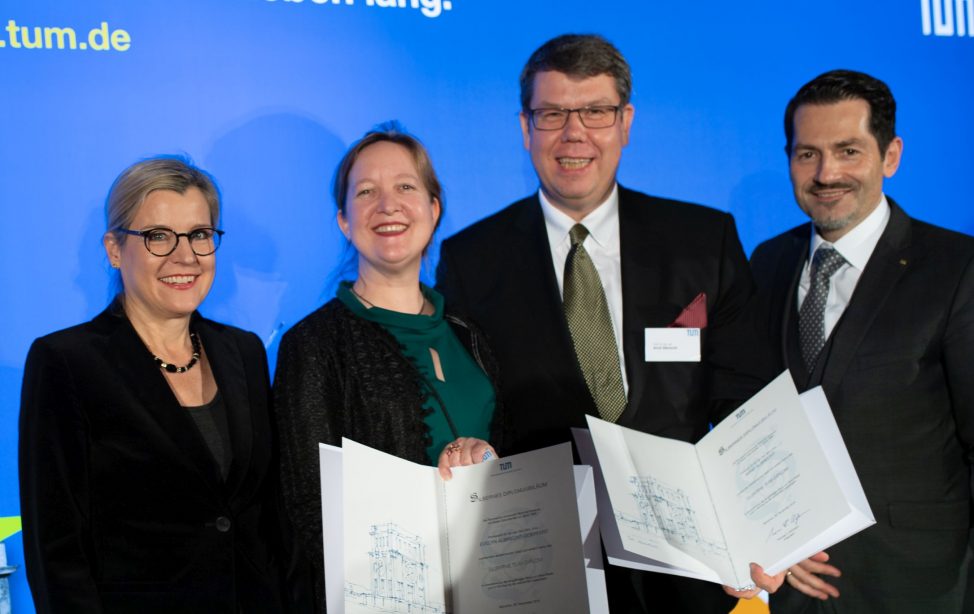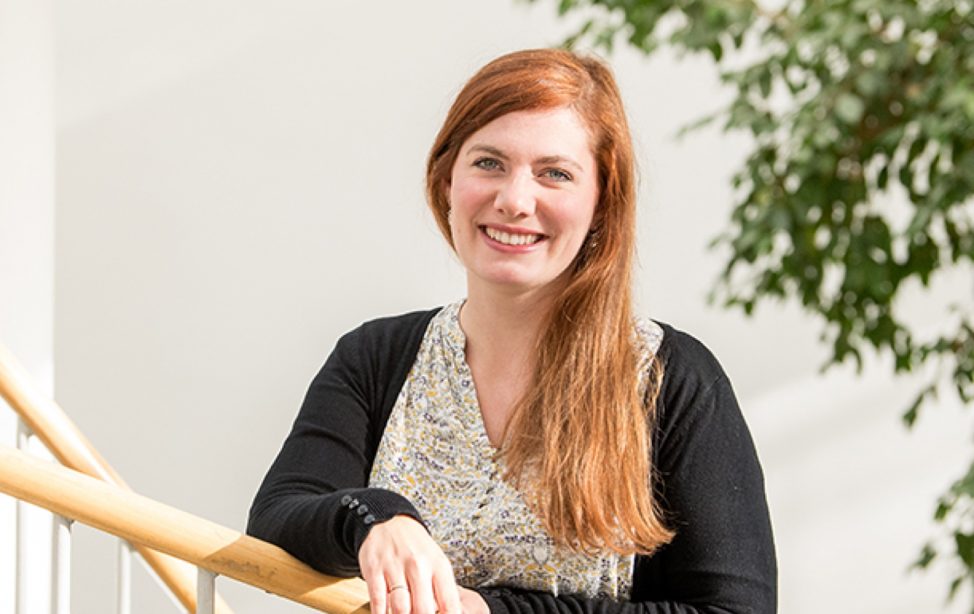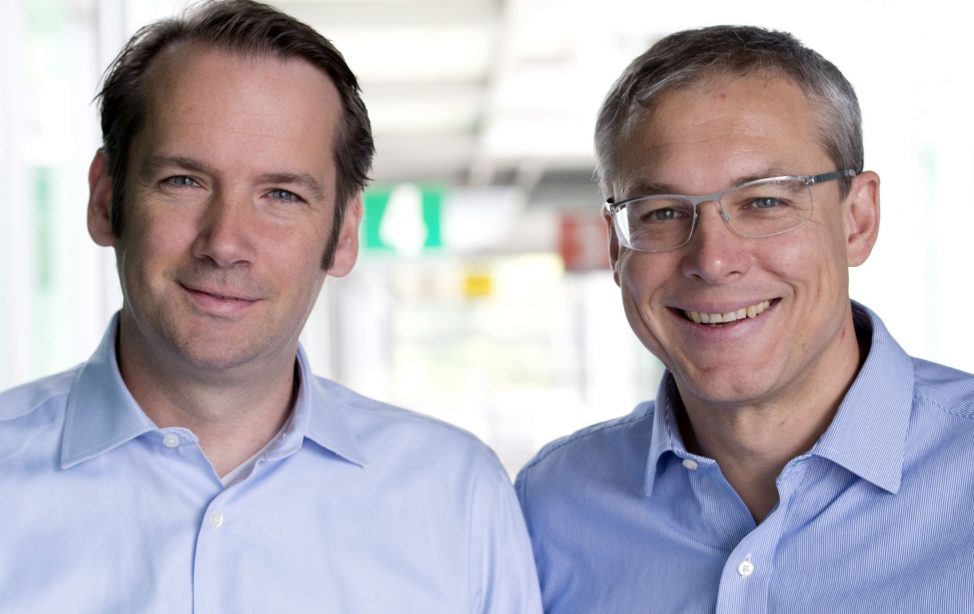
Dr. Marwa El Hefnawy now works for the Huawei Group. In addition to her successful career, she is also involved as a mentor in the TUM network (Photo: Private).
Engineer Dr. Marwa El Hefnawy has long since achieved many of her own goals. In 2015, she completed her doctorate in electrical engineering at TUM. During her doctorate, she also worked in industry, at the Japanese company Docomo. After graduating, she made a career at Intel, Apple and most recently Huawei.
In addition to her work, she is extremely active as a mentor for young female scientists. She is a global ambassador and EU Advisory Board President of the Society of Woman Engineers and supports young female scientists at her alma mater as a mentor and career coach.
I want to give something good back to the TUM community because I had one of the best times of my life there.
STRENGTHEN SELF-CONFIDENCE
From her own experience as a scientist, she knows how important encouragement can feel in some moments. “Often it’s just about reminding people that there is light at the end of the tunnel.” Encouraging young scientists in their self-confidence in difficult moments.
“The doctoral phase is one of the most stressful phases in life,” says Marwa El Hefnawy. At the same time, she is convinced that you learn important soft skills during this phase, which are also important for a career in industry later on: Time management, teamwork, project management, dealing with the pressure of deadlines, expectations and stress. As a mentor, she can give her mentees a lot in this regard.
The TUM Alumna has experienced for herself what a difference a good mentor can make in life. After completing her Master’s degree at the University of Ulm, the professor who supervised her thesis recommended her for the position at Docomo, which was linked to a doctorate at TUM.
During her doctoral studies, Prof. Dr. Gerhard Kramer became her mentor: he holds the Chair of Communications Engineering at TUM and is now Executive Vice President for Research and Innovation at TUM. His encouragement also carried her through the difficult phases of her dissertation. “He motivated me to keep at it, even when the results of a series of experiments were not what I had hoped for,” says the TUM Alumna today.
SUPPORT FOR FEMALE ENGINEERS
Later in her career, mentors again played an important role for Marwa El Hefnawy because they motivated her to open up to new subject areas and apply for positions that did not strictly fit her CV. This is another reason why she would always recommend that young female engineers look for mentors after switching to science. “These people believe in you, already have a larger network and can therefore also open other doors,” she says.
Marwa El Hefnawy believes that this form of mutual support can make a big difference, especially for female engineers, because the industry is still dominated by men: “As a woman in this field, you can easily be underestimated, even though you have the right training, experience and skills for the job.”
Even if you can sometimes feel alone as a woman in this environment, you are not: “The Society of Women Engineers alone networks more than 70,000 female engineers around the world.” The TUM mentoring program also provides good support if you are looking for advice from other female engineers.
One of her most important pieces of advice to young female engineers who want to move up in the industry: That you have to learn to communicate the results of your work well. “You can achieve as great results as you want – if you don’t advertise your work and communicate it well, you will quickly go under,” she says.
CELEBRATE YOURSELF
Another important piece of advice is to understand that good work is not automatically rewarded with a promotion after a while. “Only good leaders have that in mind,” she says. Instead, you have to make sure that you don’t lose sight of your own goal. The TUM Alumna recommends breaking down the big goal into realistic intermediate steps – also to be able to take countermeasures at an early stage if you don’t reach an intermediate goal: “Then you can already consider at this point what the problems are and whether a different behavior or a different working environment would lead to the goal.”
However, it is even more important to celebrate yourself when you achieve a goal you have set yourself. After all, there are enough difficult moments in successful careers – both privately and professionally. “I always want to say this to young female scientists: the path is not easy or rosy,” says the TUM Alumna, “so a career is mainly about how you deal with obstacles. And we have to tell other women about these setbacks so that they don’t stop at the same critical points.”
One of the critical points in Marwa El Hefnawy’s life: Not being able to share her everyday life with her family in Egypt because she moved to Germany for her career. It was therefore important for her to establish a second home in Germany – with friends, her voluntary work and her hobbies. When asked what advice she would have given herself at a young age, she says: “Never forget that there are things in life that are at least as important as work.

The 15th Women of TUM Talks 2025 under the motto ‘Fierce and Fearless’ brings together female students, alumnae, scientists and employees for an inspiring event. On the podium were TUM Professor Dr. Carina Baer de Oliveira Mann; TUM Alumna Dr. Aledia Bilali; TUM Alumna Dr. Anna Magdalena Hepp; moderated by Jamie Graefe (TUM Global&Alumni Office); welcomed by TUM VP Prof. Claudia Peus (Online) and TUM Women's Representative Dr. Daniela Schwarz. The event took place on 09.04.2025 at the Oskar-von-Miller Forum Munich. Photo:Astrid Eckert, TU Muenchen; Free for use in reporting on TUM, with the copyright noted

Dr. Marwa El Hefnawy now works for the Huawei Group. In addition to her successful career, she is also involved as a mentor in the TUM network.
Doctorate Electrical Engineering 2015
Dr. Marwa El Hefnawy grew up in Cairo and now lives in Munich. She completed her Bachelor of Science in Electrical Engineering and Information Technology at the German University in Cairo and wrote her Bachelor’s thesis at the University of Stuttgart. For her Master of Science in Communication Technology, she chose the University of Ulm and was supported in her studies with a scholarship from the DAAD. In 2015, she completed her doctorate in electrical engineering at TUM. Her doctoral supervisor was the current Vice President for Research and Innovation Prof. Dr. Gerhard Kramer. During this time, she worked at Docomo on the introduction of the 5G mobile communications standard. After completing her doctorate, she began a successful career in industry at the technology companies Intel and Apple.


